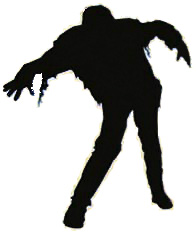“And your mother, how is her health?” I asked the cheerful young woman who had come in for a physical examination. She was draped in a blue paper gown under which her naked alabaster skin seemed translucent. Her branching veins coursed like roots close to the surface as they returned indigo blood to the warmth of her core.
She smiled, albeit woefully. “My mother actually died several years ago. She had a brain tumor… glioblastoma multiforme it was called.”
I stopped writing and looked up from the notes I had been scribbling in her chart. “I’m so sorry.”
The young woman nodded her head silently, blinked a few times, and looked purposefully at her chart as it lay on the table before me. Her body language implored me to skip along to the next subject, but I couldn’t. I couldn’t help suspending the moment as the weight of her loss attained its proper gravity in my mind. Again I noticed the cerulean web of veins stretching throughout her skin, and it summoned in my conscience a long forgotten specter.
She was lying beneath the blue canvas bag, zipped and sealed in preservative juices. On a cold metal slab among sixty other lifeless bodies she rested. There was no smell of death in the fluorescent-lit room; rather it was ripe with never-living formalin.
Each tick of the zipper was an audible point of reference from which there was no going back. The tuition had been paid, the commitments to medical school sealed, and before my eyes was appearing the first surreal crucible of physician training. There were a few gasps around the other tables. One student stepped out for fresh air, but for the most part a quiet determination cemented most of us to the trembling floor beneath our old sneakers.
My particular cadaver had been a portly woman in her lifetime. Her skin was a cold ivory. It stretched across her muscle and fat like the skin of any other animal with meat. I could see spider veins in her neck and belly. My partners and I took fearful turns with the scalpel that first day, neither knowing the depth of human flesh, nor intuitively able to accept that we couldn’t hurt her.
Days passed. The intensity of our respectful decorum gave way to the occasional lighthearted moment as we gained comfort being in a room full of dead people. Their supreme posthumous gifts to us as students opened worlds of splendid inner intricacy, magical design, and humbling fragility. Lobulated mammary fat gave way to glistening red pectoralis muscle. Palmaris longus tendons ran like white silken ribbons through forearms, fanning out after wrists to join seamlessly with the fascia of hands. Hearts nestled safely on beds of diaphragm between pillows of lung, resting obliquely at the final terminus of 60,000 miles of well-traveled blood vessels. Serpentine loops of bowel and intestine were like ruffles on collars, concealing hidden gullies and gutters behind which survived livers, pancreases, and spleens.
In the midst of all this revolting beauty I couldn’t help but search for what had killed her.
That moment of wicked discovery came while gently lifting off the top of her skull and revealing the adherent growth from her brain that stuck like rotten candy to the bone. Here lay the seat of her humanity, her transient brilliance marred by an invading glioblastoma multiforme as purplish and ugly as medieval battlefields. It had ended her.
When our dissection was done her remains were cremated, along with the others, but not before we each gave our own goodbye. Some wrote poetry, some spoke aloud, some reached out in prayer. It was a reverence for another being unlike any I’ll ever feel again. I wondered what she had envisioned in her final days, whether she knew four anonymous medical students would spend the better part of six months traveling along the roads of her preserved universe, with studied anatomy books serving as our poor guides to the back alleys and sudden turns of her necropolis. Did she wonder when we would discover her terrible secret, her unstoppable murderer? Did she know it would make me feel a kind of sadness stirred from the disparate emotions of sorrow, exultation, and wonder?
Did she hope, correctly, that each time I palpated a liver, delivered a child, interpreted an EKG, peered into an eye, injected a joint, reviewed an MRI, or tapped a spinal canal that I was unwittingly polishing my vision through a lens first ground in her anatomy? And as I shook off my moment’s delayed reflection, in a small family practice, during a routine physical examination all those years later, I still wondered at what kind of woman she must have been, and recoiled from hearing an echo of the horrific tumor that inspired her final offering – a body for our cold slab of an altar.
“I’m sorry to hear that your mother died of a brain tumor,” I said. My patient nodded once more, and then it was time for me to move on.




